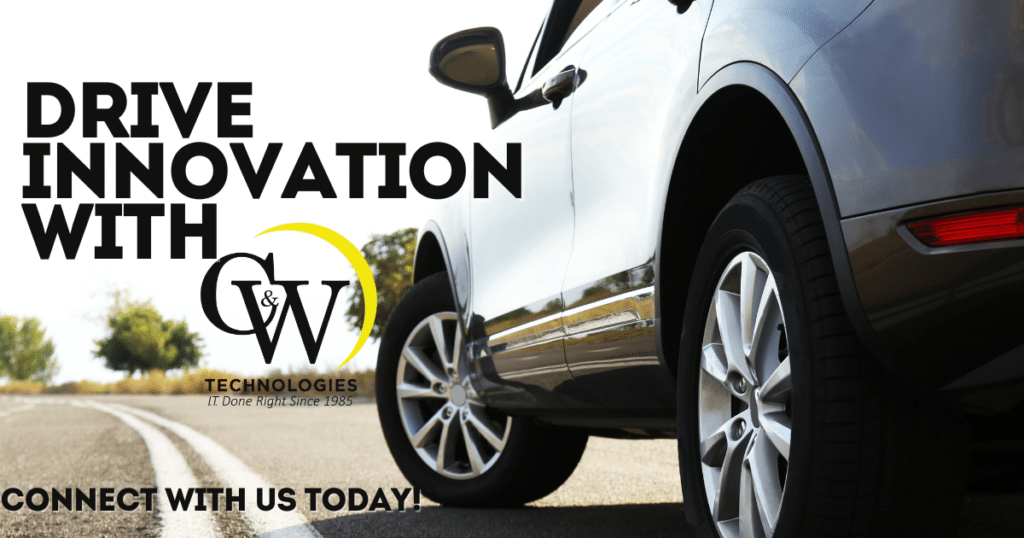Driving Forward: Top Automotive and Mobility Opportunities in 2024
The automotive and mobility sectors are experiencing a rapid transformation, driven by advancements in technology, changing consumer preferences, and the global push towards sustainability. As we look ahead to 2024, several key opportunities stand out for businesses and innovators looking to make a significant impact. This comprehensive guide explores the top opportunities in the automotive and mobility sectors for 2024, providing insights into the trends and technologies that are set to shape the future.
1. Electric Vehicle (EV) Expansion
The transition to electric vehicles (EVs) is one of the most significant shifts in the automotive industry. Governments around the world are implementing stricter emissions regulations and offering incentives to promote the adoption of EVs. This creates numerous opportunities:
EV Manufacturing
The demand for EVs is expected to grow exponentially. Companies that invest in producing new electric models will be well-positioned to capture market share. This includes not only traditional automakers but also new entrants focused solely on electric vehicles. The key to success will be offering a range of models that meet diverse consumer needs, from affordable compact cars to high-performance luxury vehicles.
Battery Technology
Advancements in battery technology are crucial for the widespread adoption of EVs. Opportunities exist in developing batteries that are more efficient, have longer ranges, and charge faster. Additionally, battery recycling and second-life applications for used batteries will become increasingly important as the number of EVs on the road grows.
Infrastructure Development
One of the biggest challenges for EV adoption is the availability of charging infrastructure. There are significant opportunities in building and managing charging stations, particularly in urban areas and along major highways. Integrating charging infrastructure into new residential and commercial developments will also be a key growth area.
2. Autonomous Vehicles
Autonomous vehicles (AVs) are poised to revolutionize transportation, offering the potential for safer, more efficient, and more convenient travel. While fully autonomous vehicles are not yet commonplace, significant progress is being made in this area:
Software Development
Developing the sophisticated software required for autonomous driving is a major opportunity. This includes creating advanced algorithms and artificial intelligence (AI) systems that can navigate complex environments and make real-time decisions. Companies specializing in machine learning, computer vision, and sensor fusion are at the forefront of this innovation.
Sensor and Hardware Innovation
High-quality sensors such as LIDAR, radar, and cameras are essential for autonomous vehicles to perceive their surroundings accurately. There are opportunities for companies to develop more reliable, affordable, and efficient sensors. Additionally, advancements in hardware, such as processors and control units, will be critical for the performance of autonomous systems.
Regulatory and Safety Compliance
Ensuring that autonomous vehicles meet safety standards and regulatory requirements is a significant challenge. Companies that can navigate this complex landscape and work with regulators to develop industry standards will have a competitive advantage. This includes conducting rigorous testing and validation to ensure the safety and reliability of autonomous systems.
3. Connected Cars
The integration of the Internet of Things (IoT) into vehicles is transforming the driving experience, making cars more intelligent and connected. This trend presents several opportunities:
Telematics
Telematics involves using telecommunications and informatics to provide real-time data on vehicle performance, maintenance needs, and driver behavior. Opportunities exist in developing telematics systems that can monitor vehicle health, optimize fleet management, and enhance driver safety. These systems are particularly valuable for commercial fleets and insurance companies.
Infotainment Systems
Modern vehicles are becoming entertainment hubs on wheels. There are opportunities to develop advanced infotainment systems that offer a seamless and engaging user experience. This includes integrating features such as voice recognition, navigation, streaming services, and connectivity with other smart devices.
Cybersecurity
As vehicles become more connected, the risk of cyberattacks increases. Ensuring the cybersecurity of connected cars is critical to protect sensitive data and maintain vehicle safety. Companies specializing in automotive cybersecurity can provide solutions to safeguard against hacking, data breaches, and other cyber threats.
4. Shared Mobility
Shared mobility is gaining traction as urbanization and environmental concerns drive the need for more efficient transportation solutions. Key opportunities in this area include:
Ride-Hailing Services
Ride-hailing services like Uber and Lyft have transformed urban transportation. There are opportunities to expand these platforms, improve user experiences, and develop new business models. This includes offering premium services, carpooling options, and integrating ride-hailing with other modes of transport.
Car-Sharing Programs
Car-sharing programs provide an alternative to car ownership, allowing users to rent vehicles for short periods. Opportunities exist in developing and managing car-sharing fleets, particularly in densely populated urban areas. Companies can also explore innovative approaches such as peer-to-peer car-sharing, where individuals rent out their own vehicles.
Micro-Mobility Solutions
Micro-mobility solutions, including e-scooters, e-bikes, and other small, shared vehicles, are becoming popular for short-distance travel. Investing in these solutions can provide convenient and eco-friendly transportation options for urban residents. There are also opportunities to integrate micro-mobility with public transportation systems to create seamless multi-modal travel experiences.
5. Sustainable Practices
Sustainability is becoming a cornerstone of the automotive industry as companies strive to reduce their environmental impact. There are numerous opportunities to innovate in this area:
Recycling and Reusing Materials
Developing processes for recycling car parts and using sustainable materials in manufacturing can significantly reduce waste and emissions. Companies can explore new materials such as bio-based plastics, recycled metals, and natural fibers. Additionally, establishing efficient recycling systems for end-of-life vehicles will be crucial for sustainability.
Eco-Friendly Manufacturing
Implementing greener production methods and reducing emissions throughout the supply chain are key goals for the automotive industry. Opportunities exist in adopting renewable energy sources, improving energy efficiency, and minimizing waste in manufacturing processes. Companies that can demonstrate a commitment to sustainability will attract environmentally conscious consumers and investors.
Alternative Fuels
Exploring alternative fuels such as hydrogen, biofuels, and synthetic fuels offers opportunities to reduce reliance on fossil fuels. Companies can invest in the development and commercialization of these fuels, as well as the infrastructure needed for their distribution. Alternative fuels can complement the growth of electric vehicles and provide options for sectors where electrification is more challenging.
6. Advanced Driver-Assistance Systems (ADAS)
ADAS technology is bridging the gap between conventional and fully autonomous vehicles by enhancing safety and convenience. Key opportunities in this area include:
Development of New Features
There are opportunities to enhance existing ADAS features and develop new ones. This includes improving adaptive cruise control, lane-keeping assistance, automated parking, and collision avoidance systems. Companies can leverage AI and machine learning to make these systems more accurate and reliable.
Integration with Existing Vehicles
Creating aftermarket solutions that allow older vehicles to benefit from ADAS technologies is a significant opportunity. This includes developing retrofit kits that can be easily installed in existing vehicles, providing enhanced safety features without the need to purchase a new car.
Safety and Compliance
Ensuring that ADAS systems comply with safety standards and are reliable is essential. Companies that can conduct thorough testing and validation, and work with regulators to establish industry standards, will have a competitive advantage. This includes developing fail-safe mechanisms and redundancy systems to enhance safety.
7. Mobility as a Service (MaaS)
MaaS is transforming how people plan and pay for transportation by integrating various modes of transport into a single, seamless experience. Opportunities in this area include:
Developing Integrated Platforms
Creating apps and services that combine public transportation, ride-hailing, car-sharing, and micro-mobility into a single platform can enhance user convenience. These platforms can provide real-time information, route planning, and payment integration, making it easier for users to navigate urban environments.
Subscription Models
Offering flexible subscription-based transportation solutions can appeal to consumers who prefer not to own a vehicle. Subscription models can include access to a variety of transportation options, allowing users to choose the most suitable mode for each trip. Companies can also explore bundling transportation services with other lifestyle offerings.
Data Analytics
Leveraging data analytics to optimize routes, reduce costs, and improve user experiences is a significant opportunity. Companies can use data to understand travel patterns, predict demand, and optimize service delivery. This can lead to more efficient transportation systems and better customer satisfaction.
Tech In Future: 2030
It is challenging to predict precisely what the tech landscape will look like in 2030, as technology evolves and advances at a rapid pace. However, we can make some educated guesses based on current trends and projections.
Artificial Intelligence (AI)
By 2030, AI is expected to have a significant impact on various industries and enhance our daily lives. With advancements in machine learning and deep learning, AI-powered systems will become more intelligent and capable of performing complex tasks. We can expect to see AI being used in areas such as healthcare, transportation, finance, and manufacturing.
Moreover, with the rise of smart homes and Internet of Things (IoT) devices, AI assistants will become more integrated into our homes and daily routines. These assistants will be able to understand and respond to more complex commands, making them even more helpful in managing our tasks and schedules.
Autonomous Vehicles
By 2030, we can expect to see a significant increase in the use of autonomous vehicles. With advancements in technology and infrastructure, self-driving cars will become more common on roadways. This will not only improve transportation efficiency but also enhance safety by reducing human error.
Additionally, we may see the development of flying cars or vertical take-off and landing (VTOL) vehicles for personal transportation, reducing travel time and congestion in urban areas.
Virtual Reality (VR)
Virtual reality is expected to become more prevalent in various industries, such as gaming, education, and healthcare. By 2030, VR technology will likely be more advanced, providing users with an even more immersive experience.
Additionally, with the rise of remote work and virtual meetings, we may see the integration of VR into communication tools for a more realistic and interactive experience.
Blockchain
By 2030, blockchain technology is expected to have a significant impact on various industries beyond just finance. We can expect to see its implementation in areas such as supply chain management, voting systems, and digital identity verification.
Moreover, with the rise of decentralized finance and non-fungible tokens (NFTs), blockchain will continue to disrupt traditional systems and create new opportunities for businesses and individuals.
With endless possibilities for innovation and growth. As we continue to advance in technology, it is essential to ensure that its development is ethical and beneficial for all individuals. With responsible use and investment in technology, we can create a brighter future where technology enhances our lives and makes the world a better place. So, businesses should embrace these advancements while also prioritizing ethical considerations to shape a positive future for tech in 2030 and beyond.
Empowering Tech with C&W Technologies: Your All-in-One IT Partner
As an all-encompassing IT company, C&W Technologies is dedicated to driving technological innovation and excellence. Our expertise spans AI, machine learning, IoT, cybersecurity, and cloud computing, providing comprehensive solutions that transform industries and enhance business operations.
From optimizing data management and integrating smart technologies to fortifying cybersecurity measures, C&W Technologies is committed to delivering cutting-edge IT solutions tailored to your needs. Our team of experts continuously innovates to stay ahead in the ever-evolving tech landscape, ensuring your business operates smoothly and efficiently.
Whether you’re looking to streamline operations, enhance security, or leverage the latest technology trends, C&W Technologies has the expertise and dedication to help you succeed.
Connect with us to explore how our innovative IT services can propel your business forward. Visit our website or contact us today to learn more and embark on this exciting journey with us.
Frequently Asked Questions (FAQs)
What is automotive technology?
Automotive technology refers to the study and application of technology in the design, development, manufacture, and maintenance of vehicles. This includes advancements in electronics, software, and mechanical systems that improve vehicle performance, efficiency, and safety.
What roles do automotive service technicians and automotive technicians play?
Automotive service technicians and automotive technicians are skilled professionals responsible for diagnosing, repairing, and maintaining vehicles. They work on various vehicle systems, including engines, transmissions, brakes, and electrical components, ensuring that vehicles operate safely and efficiently.
How do emerging technologies impact the automotive industry?
Emerging technologies such as electric vehicles, autonomous driving systems, and advanced driver-assistance systems (ADAS) are revolutionizing the automotive industry. These innovations enhance vehicle safety, reduce environmental impact, and improve overall driving experiences. Automotive technicians must stay updated with these advancements to provide effective service and maintenance.
Why is there a high demand for skilled automotive technicians?
As automotive technology becomes more complex and sophisticated, the need for skilled automotive technicians continues to grow. These professionals must possess a deep understanding of both traditional mechanical systems and modern electronic systems to effectively diagnose and repair vehicles. Ongoing training and education in emerging technologies are essential for staying competitive in the industry.
What is an automotive technology program?
An automotive technology program is an educational curriculum designed to equip students with the knowledge and skills needed to become proficient automotive technicians. These programs typically cover a wide range of topics, including engine repair, electrical systems, diagnostics, and emerging automotive technologies. Graduates of automotive technology programs are prepared to enter the workforce as competent and skilled technicians.
How can I stay updated on advancements in automotive technology?
To stay updated on advancements in automotive technology, consider enrolling in continuing education courses, attending industry conferences, and subscribing to automotive industry publications. Networking with other professionals in the field and participating in online forums can also provide valuable insights into the latest trends and innovations.
How will future technology impact the automotive industry?
Future technology is set to revolutionize the automotive industry in numerous ways. Advances in electric vehicles (EVs), autonomous driving systems, and smart connectivity will lead to safer, more efficient, and environmentally friendly transportation.
What career opportunities are available for an automotive technician?
Automotive technicians have a variety of career opportunities available to them, ranging from working in vehicle repair shops and dealerships to specialized positions in manufacturing, motorsports, and fleet maintenance. As the industry evolves, there are also opportunities in emerging fields such as electric and hybrid vehicle maintenance, autonomous vehicle technology, and automotive software development.
How is augmented reality (AR) used in the automotive industry?
Augmented reality (AR) is used in the automotive industry to enhance both the manufacturing process and the driving experience. In manufacturing, AR allows for efficient training and assembly processes by overlaying digital instructions and data onto physical components. For drivers, AR can provide real-time information such as navigation guidance, hazard detection, and vehicle diagnostics directly onto the windshield, improving safety and convenience.
How does human intervention complement self-propelled vehicles?
Human intervention plays a crucial role in the functionality and safety of self-propelled vehicles. While autonomous technologies are advancing rapidly, human oversight ensures correct decision-making in complex or unforeseen scenarios. Operators can take control when needed to navigate challenging environments or address system failures.
What are self-propelled vehicles?
Self-propelled vehicles are any vehicles that can operate without direct human control, utilizing technologies such as sensors, artificial intelligence, and machine learning to navigate and perform tasks. Examples include autonomous cars, drones, and robotic delivery systems.
What are disruptive technologies in the automotive industry?
Disruptive technologies in the automotive industry refer to innovations that significantly alter the traditional automotive landscape. These include electric vehicles (EVs), autonomous driving systems, and advanced driver-assistance systems (ADAS), which collectively are reshaping how vehicles are manufactured, operated, and serviced.
What developments can we expect in the foreseeable future for the automotive industry?
In the foreseeable future, the automotive industry will likely see continued advancements in electric and autonomous vehicle technologies. Enhanced smart connectivity features, improved battery life for EVs, and more sophisticated AI-driven systems are expected to become standard. The industry will also focus on further integrating disruptive technologies to create safer, more efficient, and sustainable transportation solutions.


